


Caird Hall, Dundee
Thursday 29 Feb 2024: 7.30pm
Usher Hall, Edinburgh
Friday 1 Mar: 7.30pm
Glasgow Royal Concert Hall
Saturday 2 Mar: 7.30pm






Caird Hall, Dundee
Thursday 29 Feb 2024: 7.30pm
Usher Hall, Edinburgh
Friday 1 Mar: 7.30pm
Glasgow Royal Concert Hall
Saturday 2 Mar: 7.30pm



previously
Build a highly dependable, secure and cost-effective print capability for your teams, with centralised control and optimisation.


Digitise documents, data and workflow to automate your processes and give your people easy access to information they need, 24/7.


Give your employees the power to work anywhere with hybrid mail technology, digital mailroom systems, remote printing and more…

Connect your teams, customers and partners with VoIP telephony, unified communication, IP connectivity, display systems and more…





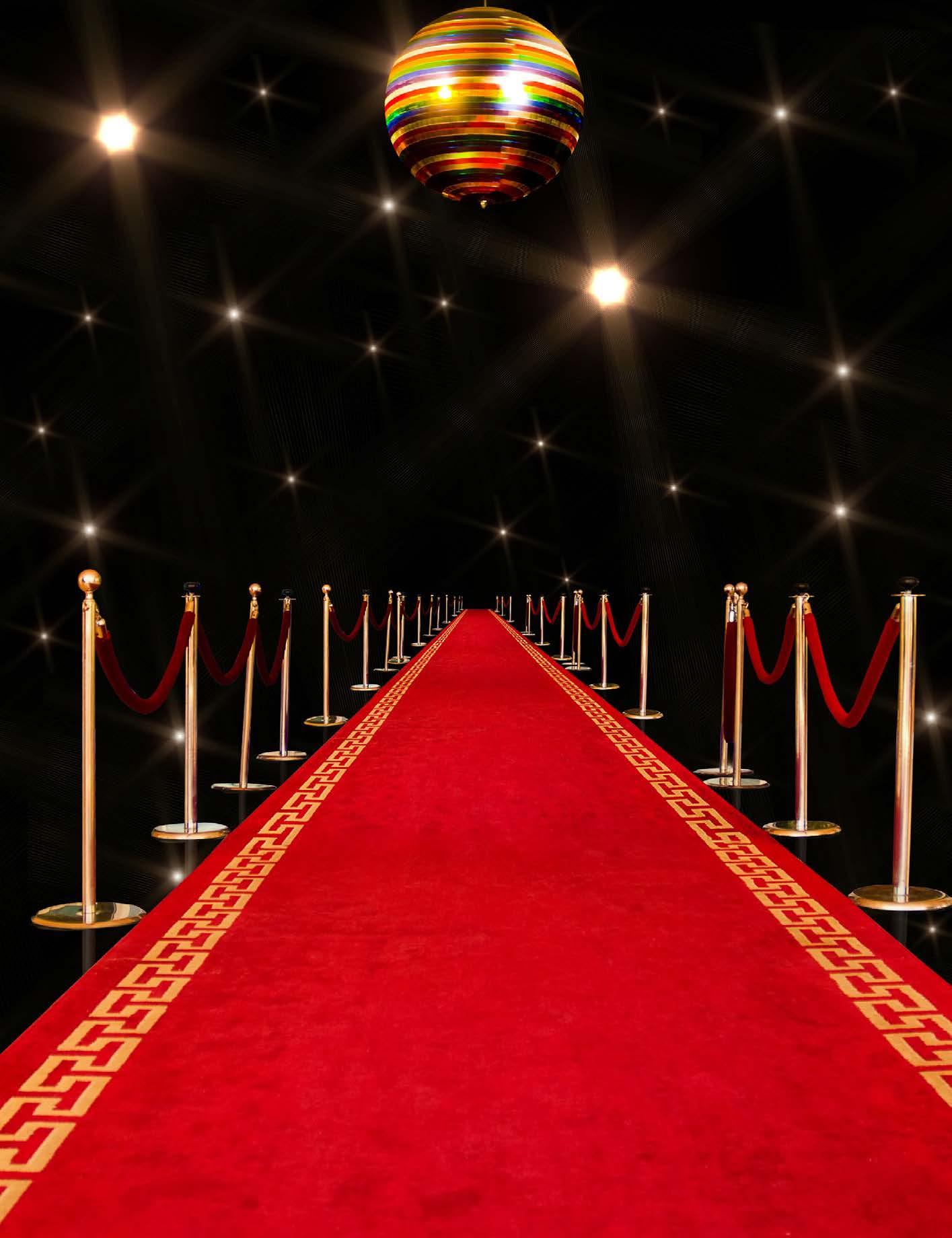
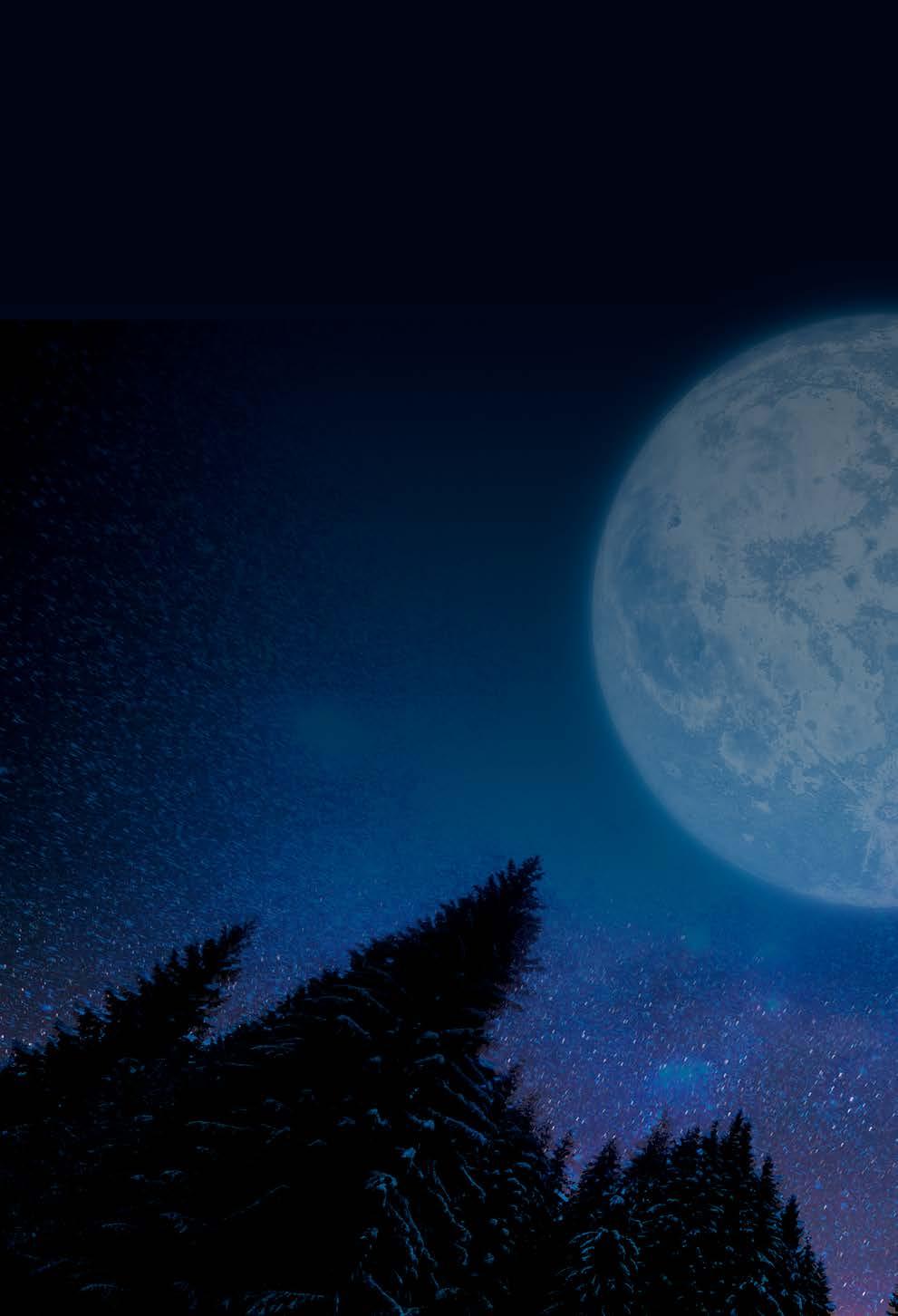
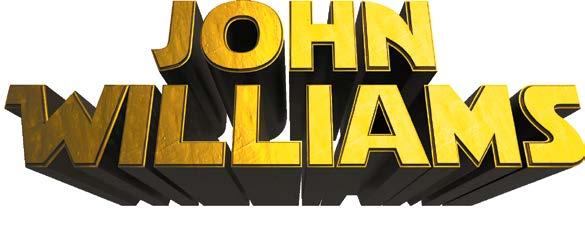
From Star Wars to Harry Potter, Jaws to Superman, whether you’re swashbuckling with Indiana Jones or cycling through the air with a little alien who just wants to phone home, you already know the tunes. The music of John Williams has given us some of the greatest cinematic adventures of our lives, and no one understands these scores better than movie maestro Richard Kaufman. Experience the thrill of these legendary soundtracks – plus a special premiere from our Film Composers Lab winner –performed live by the RSNO, Scotland’s National Orchestra.
Olympic Fanfare and Theme [4’]
A New Beginning from Minority Report [4’]
Born on the Fourth of July [5’]
Harry Potter and the Chamber of Secrets: Suite [13’]
Close Encounters of the Third Kind: Concert Suite [10’]
Love Theme from Superman [5’]
Flying Theme from E.T. the Extra-Terrestrial [4’]
Of Grit and Glory [4’]
Alice Mills
Love on the Wing [5’]
WORLD PREMIERE
Flight to Neverland from Hook Catch Me If You Can: Escapades for Alto Saxophone and Orchestra [4’]
The Adventures of Indiana Jones [4’]
Suite from Jaws [7’]
Suite from Star Wars: Episode IX: The Rise of Skywalker [8’]
Star Wars Suite: Main Title [5’]
Richard Kaufman Conductor Royal Scottish National Orchestra
Sponsored by



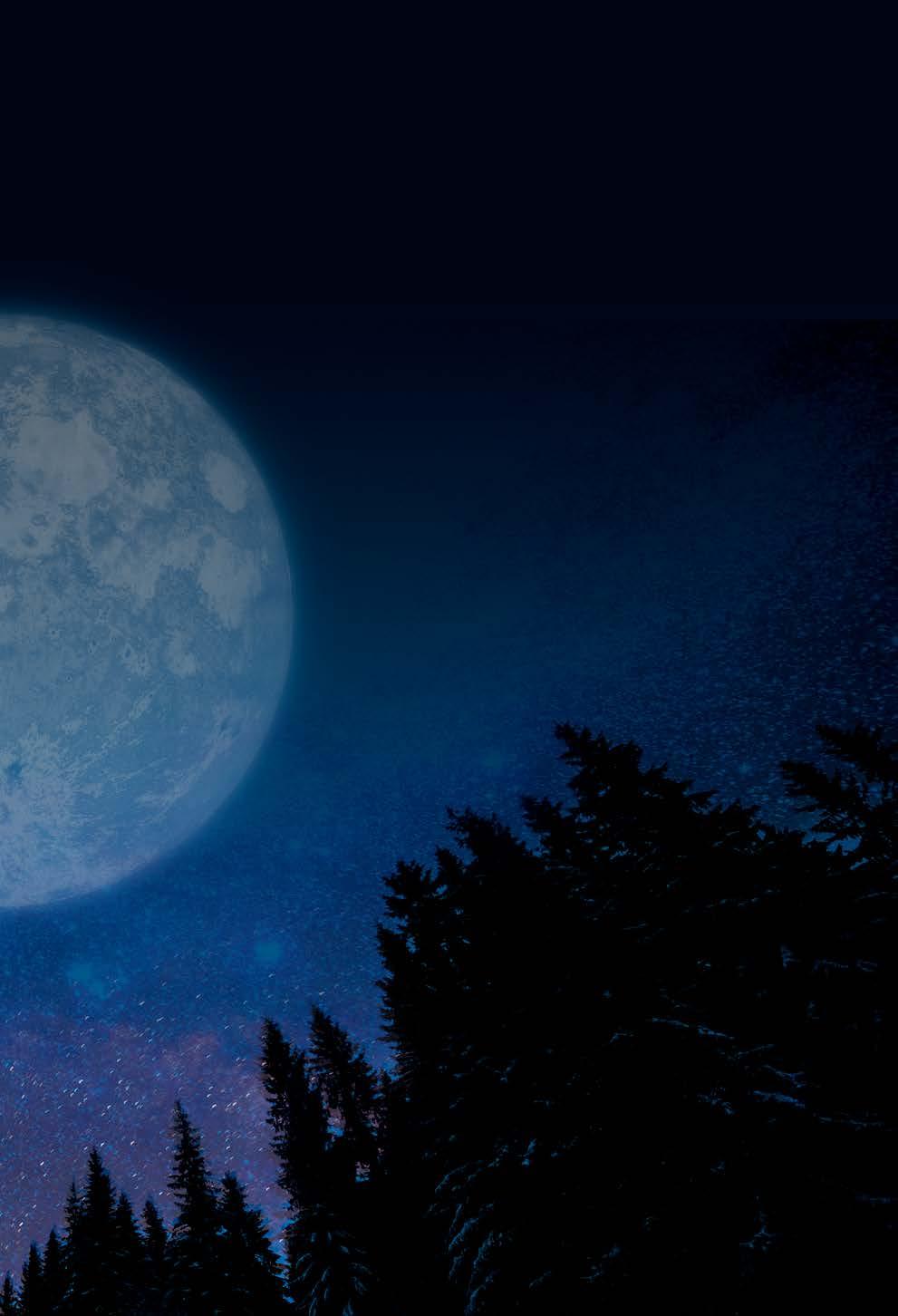
If viewing these notes at the concert, please do so considerately and not during performances. Please silence all mobile telephones and alerts, and refrain from taking photographs, without flash, until the end of each piece.
The concert in Dundee is kindly supported by the Northwood Charitable Trust, R J Larg Family Trust, Leng Charitable Trust, Tay Charitable Trust and Leisure & Culture Dundee Major Music Award. The Glasgow performance will be recorded for the RSNO Archive. Supported by the Iain and Pamela Sinclair Legacy.What was the last film score you could whistle or hum? Go on, think about it! Now think about that melody, the movie it comes from and the mood it conjures. Oh, and who wrote that score? I wager that for the most part, the composer was the focus of tonight’s concert, the man who brought you here – John Williams.
Williams has been, without question, the preeminent composer of feature film soundtracks for more than five decades. He is established, not only among the Hollywood establishment but with the public at large, as the composer who provides musical, lyrical and cultural satisfaction in films again and again. With so many of today’s soundtracks focusing on mood, the music often becomes just part of the soundscape of the film. It is only John Williams who consistently brings us both mood and melody.
Williams was born in New York in 1931. A talented pianist, composer and orchestrator who studied at the city’s Juilliard School, he arrived in Los Angeles in the early 1950s on the crest of a creative wave caused by the end of World War II, a renaissance in film production, the transition of musicians from touring big bands to permanent studio orchestras, and the development of the newfangled medium of television.
scores for Alfred Hitchcock) and with fellow pianist and composer André Previn, for whom he arranged some fine jazz big band albums. Cutting his teeth in TV, Williams ultimately moved full time to feature films, for which he produced some of the most famous and treasured music of our time. Not all of his output, however, has been for the Hollywood screen, as other great cultural institutions have also had the wherewithal on occasion to commission his genius.

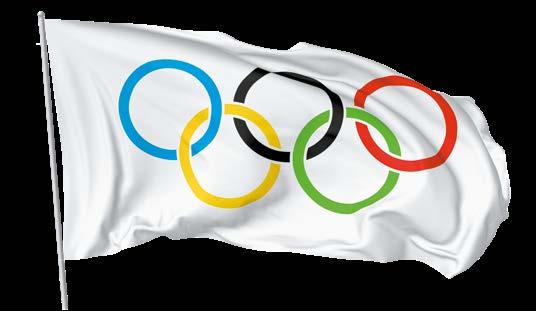
He entered Hollywood as a can-do-all pianist (he is a phenomenal sight-reader, with a gift for jazz) and accomplished arranger, and quickly came to prominence as pianist in Henry Mancini’s famous studio orchestra. While still in demand as a session pianist, he found himself turning more and more to composing, having already worked as assistant and orchestrator with his hero Bernard Herrmann (who wrote so many great
Williams’ film music was so familiar to audiences the world over, it was only natural that the Organising Committee of the 1984 Los Angeles Olympics would turn to him to write an Olympic Fanfare and Theme to be used throughout the Games. In a 1992 interview, Williams said he intended the work to represent musically ‘the spirit of cooperation, of heroic achievement, all the striving and preparation that goes before the events and all the applause that comes after them’.

It was the director Steven Spielberg who recognised Williams’ unique, innate ability to conjour both melody and mood, having gathered multiple Oscars on the 1975 film, Jaws. Williams
6 The Music of John Williams
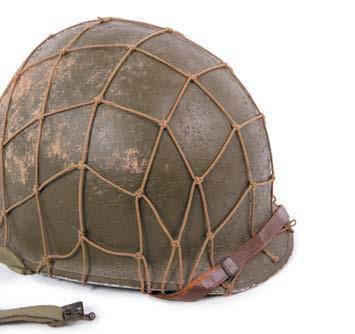
The wars of the 20th century and their aftermath have played a huge role in Williams’ works, including our next selection, from Oliver Stone’s 1989 Born on the Fourth of July, which follows a passionately patriotic teen from volunteering for the Vietnam War to becoming an embittered veteran paralysed from the mid-chest down. Williams’ score was nominated for the Oscar, losing out to The Little Mermaid, but it serves as a beautifully melancholic voice for the disillusioned.
Unlike Star Wars, with its grand fanfare and its Imperial March, Williams gave Harry Potter some less visceral themes. In the second movie in the series, his music continues to
motifs are incredibly simple, such as the iconic five-note phrase in Close Encounters of the Third Kind. Williams composed around 350 five-note phrases before he and director Spielberg settled on the famous one heard in the soundtrack to the 1977 film. Well, you can’t expect a superior alien race to use any old
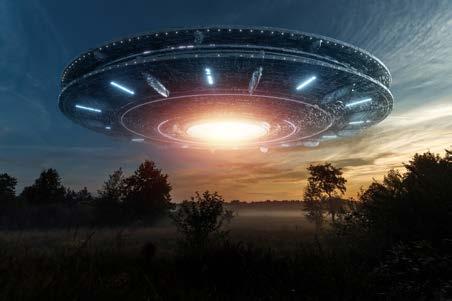
musical phrase to communicate with humans! Unnerving and evocative, it’s a fitting soundtrack for a film exploring the life-changing encounter
RSNO: Scotland’s National Orchestra 7between an ordinary man and visitors from outer space.
The love theme from Superman (1978) is surely one of Williams’ most instantly recognisable pieces of orchestral music, encapsulating the one-sided romance of the star-struck reporters Lois Lane and Clark Kent, and her obliviousness to the fact that Clark is in fact Superman. The score that accompanied the film revived, along with Williams’ work on Star Wars and Close Encounters, an orchestral approach that was crucial to adventure films from the late 1930s to the mid-1960s with such success that there can be few listeners anywhere who do not know this music, and few fans who aren’t immediately stirred by it. The film and its effects may now be a little dated but listen to Williams’ Love Theme and you’ll believe a man can fly!
In January 2023, Williams premiered a commission for the American ESPN College Football Championship. Titled Of Grit and Glory, this new work plays like a joyful overture, opening with fanfares and shifting seamlessly from martial urgency to anthemic splendour, all richly orchestrated and instantly memorable.
Williams’ ability to conjure up seascapes is on a par with his great musical hero Erich Korngold, who composed so many great swashbuckling scores in the 1930s. In 1991’s Hook, one of the most magical of all Williams’ scores, a now grown-up and respectable Peter Pan rescues his own children from the clutches of the wicked Captain Hook. As collaborations between Spielberg and Williams go, its complexity and majesty have earned it a spot next to the scores to Star Wars and Jaws
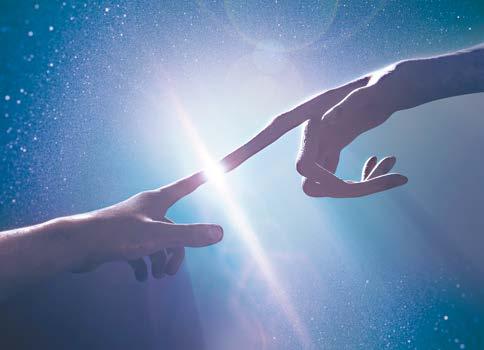
intergalactic adventures of Star Wars and The Empire Strikes Back, Spielberg’s E.T. the ExtraTerrestrial, with a score by Williams, came as a bit of a surprise. Despite the title’s promise of a ‘creature from outer space’, the action took place not in the far future but in contemporary Los Angeles, and dealt with a sad little boy with a troubled home life who finds the courage to help the very non-scary extra-terrestrial to ‘phone home’. This score is one of Williams’ finest, and one of the finest in the history of film, especially the exciting finish, in which E.T. helps the boys fly their bikes as they race to meet a spaceship which will rescue the little alien.
As mentioned earlier, Williams is a fine jazz pianist, and as a composer he has often used jazz forms and styles in his scores, from the Mos Eisley Cantina in Star Wars (referred to by director George Lucas as ‘Benny Goodman in space’) to the thrillingly authentic big-bandballroom-brawl in Spielberg’s wartime comedy 1941. In 2002’s Catch Me If You Can (another Spielberg/Williams collaboration), Williams put together a bebop-inflected concerto grosso for strings, marimba and two jazz soloists – alto saxophone and double bass. Set in the aspirational 1960s and starring Leonardo DiCaprio and Tom Hanks, the idea of a conman posing as a pilot or doctor in our post-11 September world has quite disturbing resonances. But Williams’ score, like Spielberg’s film, loiters on the light-hearted and was nominated for Best Original Score at the 75th Academy Awards.
Williams is of course still composing, at the age of 92, and naturally still winning awards. At the recent 66th GRAMMY Awards in Los Angeles, he was honoured with his 26th GRAMMY for a theme he wrote for 2023’s Indiana Jones and the Dial of Destiny. A character created by George Lucas and Steven Spielberg in 1981, Harrison Ford plays Indiana Jones, the whip-cracking
8 The Music of John Williamsarchaeologist (and archetypal Hollywood action hero). Ford, who also plays Han Solo in Star Wars, has described how Williams’ music has followed him for over 40 years, saying, ‘This music is dramatic and lyrical, reminiscent of the ’40s and ’50s and old Hollywood.’ The themes Williams has written for all The Adventures of Indiana Jones are as identifiable and as stirring as any he has written.
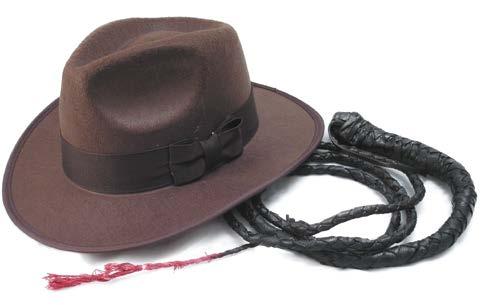
Williams’ real breakthrough came in 1975 with Spielberg’s take on Peter Benchley’s blockbuster novel about a small American seaside resort terrorised by an enormous great white shark –Jaws. Try to imagine the film without Williams’ incessant two-note bass ostinato … doesn’t quite pack the same punch, does it? Like Bernard Herrmann’s famous stabbing motif in Hitchcock’s Psycho, it almost becomes a character in itself.
And so tonight’s concert ends … a long time ago, in a galaxy far, far away – Los Angeles in the 1970s, to be precise. The young writer and director George Lucas was looking for a composer to bring some much-required gravitas
to his fledgling Star Wars project. His friend Steven Spielberg suggested John Williams, who had brought that very thing to his film Jaws and earned Williams an Academy Award for Best Original Score. Back in the early 1970s, many film studios had given up on full-scale original scores. A simple assortment of pop songs on the soundtrack was much cheaper and each one could be sold separately as a marketing tool. So it came as a surprise to many young filmgoers to hear the symphonic score for full orchestra that Williams created for Star Wars, drawing on the rich romantic sounds of the 19th century and leitmotif techniques borrowed from Wagnerian opera, creating and reworking themes for specific characters and events. In our final selection we begin some 30 years after the famous Battle of Endor, Luke Skywalker is missing and the son of Han Solo and Princess Leia, Ben Solo, is seduced by the dark side of the Force. But his aspirations are thwarted by the Rebel Alliance and in particular by a young woman called Rey, who is unusually strong with the Force. After The Rise of Skywalker, we end with the theme that started it all, I’m guessing for the majority of those in the hall tonight – Star Wars, A New Hope
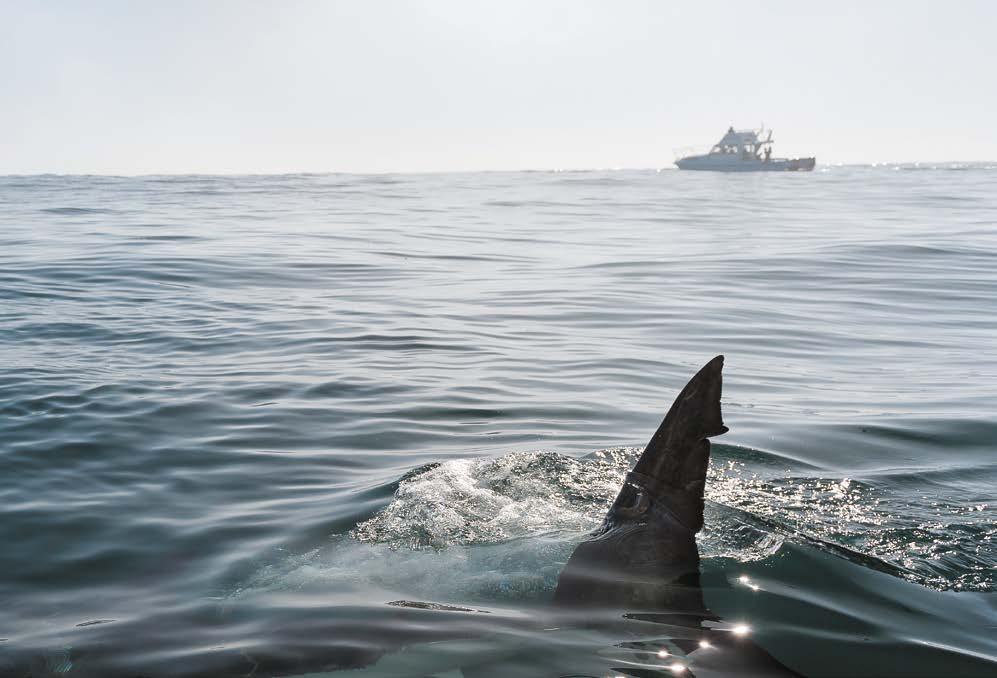
Star Wars has been an extraordinary journey for filmgoers and composer alike. Writing the music for these films over a more than 40-year period was not a consciously sought goal for Williams. What is clear, however, is that the Force is very definitely with him.
© Stephen Duffy RSNO: Scotland’s National Orchestra 9 Alice Mills (Born 2000)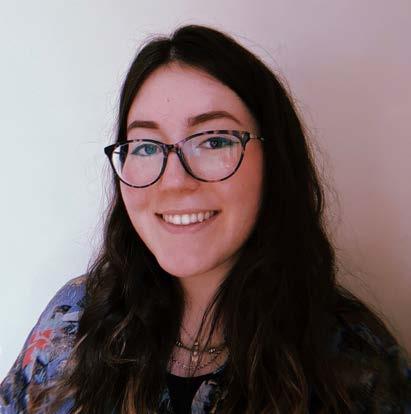
WORLD PREMIERE DURATION 5 minutes
Love on the Wing is a vibrant musical composition, created to enhance Glasgow-born Norman McLaren’s 1938 animation advertising Empire Air Mail. The visual narrative traces the tumultuous journey of two lovers through morphing hand-drawn images, reminiscent of a dance. My composition mirrors the animation’s spontaneity. Infused with lively syncopation and playful melodies, the music’s rich harmonies subtly convey the tender blossoming of love. The music guides the audience through the characters’ turbulent relationship, leading to an intense percussive climax, reminiscent of a galloping horse, bringing the piece to a powerful conclusion.
© Alice MillsAlice Mills is a predominantly computer-based composer from Surrey. Her passion for music and technology has led her to be particularly interested in interweaving the richness of orchestral instruments with the infinite spectrum of electronic sounds.
Driven by a love of art, she found herself drawn to the collaborative nature of film, and loves weaving her music into visual narratives. She has worked on numerous award-winning short films, dance works and animations, as well as her own personal music.
Growing up, she was classically trained in piano, violin and clarinet. However, her studies in music technology at Surrey University ignited a passion for experimentation. She was thrilled when the opportunity arose to revisit her orchestral roots through Film Composers Lab and is ecstatic her piece is to be performed live.
Film Composers Lab 2022:23 was kindly supported by the Boris Karloff Charitable Foundation, Fenton Arts Trust, Idlewild Trust, Jones Family Charitable Trust, Thriplow Charitable Trust and the Vaughan Williams Foundation.
10 The Music of John Williams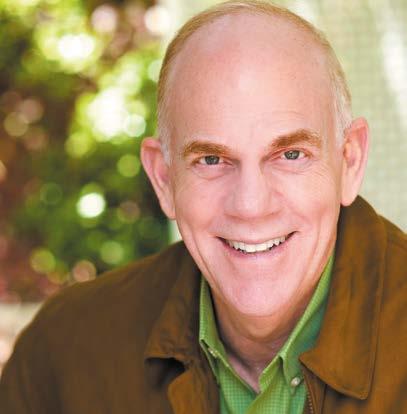
Richard Kaufman has devoted much of his musical life to conducting and supervising music for film and television productions, as well as performing film and classical music in concert halls and on recordings. After 31 seasons as Principal Pops Conductor of Orange County’s Pacific Symphony, he continues conducting the orchestra with the new title of Principal Pops Conductor Laureate. He is Pops Conductor Laureate with the Dallas Symphony, and is in his 18th season with the Chicago Symphony Orchestra concert series, CSO at the Movies. He regularly appears as a guest conductor with symphony orchestras throughout the USA and around the world.
In 2015 he made his conducting debut with the Boston Pops, substituting for John Williams at the Annual Pops Film Night. In 2016 Williams invited him to share the podium at the annual Tanglewood Film Night, and in 2018 he again joined Williams in concerts with the Chicago Symphony.
In 2016 he conducted the live performance of Michael Giacchino’s score for Star Trek Beyond with the San Diego Symphony at its gala world
premiere, the first time a film was presented outdoors in IMAX.
Richard’s live-performance-to-film repertoire includes over 30 films, and in 2014, at the Virginia Arts Festival, he conducted the world premiere of Stewart Copeland’s score for the 1925 silent classic Ben Hur
Richard received the 1993 GRAMMY Award for Best Pop Instrumental Performance for a recording he conducted with the Nuremberg Symphony. In 2011 he conducted the London Symphony Orchestra in a concert of the film music of Dimitri Tiomkin, the first film music recording released on the LSO Live label, which was nominated for a 2013 GRAMMY (Best Instrumental Accompaniment for a Vocal, Wild is the Wind, arranger Nan Schwartz) and was also among several LSO recordings produced by James Mallinson which received GRAMMY nominations in the Best Classical Producer category.
Richard joined the Music Department of Metro-Goldwyn-Mayer Studios in 1984 as Music Coordinator, and for the next 18 years supervised music for all MGM television and animation projects. He received two Emmy Award nominations, one for the animated series The Pink Panther in the category of Outstanding Music Direction and Composition, and another for Outstanding Original Song co-authored for the series All Dogs Go to Heaven
Born in Los Angeles, Richard began violin studies at age 7, played in the Peter Meremblum California Junior Symphony, and was a member of the Young Musicians Foundation Debut Orchestra. He attended the Berkshire Music Festival at Tanglewood on the Fellowship programme, and earned a BA in Music from California State University Northridge. While a student there, he composed the University’s Alma Mater and Fight Song.
RSNO: Scotland’s National Orchestra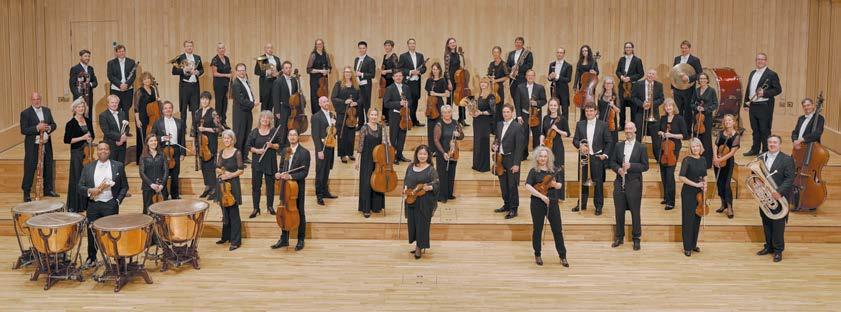
The Royal Scottish National Orchestra is one of Europe’s leading symphony orchestras. Formed in 1891 as the Scottish Orchestra, the company became the Scottish National Orchestra in 1950, and was awarded Royal Patronage in 1977. The Orchestra’s artistic team is led by Danish conductor Thomas Søndergård, who was appointed RSNO Music Director in 2018.
The RSNO is supported by the Scottish Government and is one of the Scottish National Performing Companies. The Orchestra performs across Scotland, including concerts in Glasgow, Edinburgh, Dundee, Aberdeen, Perth and Inverness, and appears regularly at the Edinburgh International Festival and the BBC Proms. The RSNO has made recent tours to the USA, China and Europe.
The RSNO has a worldwide reputation for the quality of its recordings, receiving a 2020 Gramophone Classical Music Award for Chopin’s Piano Concertos (soloist: Benjamin Grosvenor), conducted by Elim Chan, two Diapason d’or awards (Denève/Roussel 2007; Denève/ Debussy 2012) and eight GRAMMY Award
nominations. Over 200 releases are available, including Thomas Søndergård conducting Strauss (Ein Heldenleben, Der Rosenkavalier Suite) and Prokofiev (Symphonies Nos1 and 5); two discs of African American Voices featuring the music of George Walker, William Levi Dawson, Margaret Bonds and more, conducted by Kellen Gray; the complete symphonies of Sibelius (Gibson), Prokofiev (Järvi), Bruckner (Tintner) and Roussel (Denève); as well as further discs championing the music of William Grant Still (Eisenberg), Xiaogang Ye (Serebrier) and Thomas Wilson (Macdonald).
The RSNO’s Engagement strategy, Music for Life, sees the Orchestra work with schools and community groups, connecting its music with the people of Scotland. Since March 2020, the RSNO has created multiple online Engagement programmes and Digital Seasons, ensuring the RSNO continues to bring world-class music to its audiences in Scotland and around the world on stage and on screen.
12 The Music of John WilliamsIgor Yuzefovich
GUEST LEADER
Lena Zeliszewska
ASSOCIATE LEADER
Shlomy Dobrinsky
Mikhel Kerem
Veronica Marziano
Ursula Heidecker Allen
Susannah Lowdon
Lorna Rough
Elizabeth Bamping
Liam Lynch
Caroline Parry
Alan Manson
Kirstin Drew
Colin McKee
Jacqueline Speirs
ASSOCIATE PRINCIPAL
Marion Wilson
Nigel Mason
Paul Medd
Emily Earl
Harriet Hunter
Anne Bünemann
Sophie Lang
Robin Wilson
Emily Nenniger
Iona McDonald
John Robinson
VIOLA
Tom Dunn
PRINCIPAL
Felix Tanner
Susan Buchan
Francesca Hunt
Lisa Rourke
Maria Trittinger
Nicola McWhirter
Beth Woodford
Claire Dunn
Sasha Buettner
Pei-Jee Ng
PRINCIPAL
Betsy Taylor
Kennedy Leitch
Rachael Lee
Sarah Digger
Robert Anderson
Gunda Baranuaskaitė
Niamh Molloy
Christian Geldsetzer
GUEST PRINCIPAL
Michael Rae
Alexandre dos Santos
Aaron Barerra-Reyes
Chris Sergeant
Evangelos Saklaras
FLUTE
Katherine Bryan
PRINCIPAL
Adam Richardson
Janet Richardson
PRINCIPAL PICCOLO
OBOE
Adrian Wilson
PRINCIPAL
Peter Dykes
Henry Clay
PRINCIPAL COR ANGLAIS
Robert Digney
GUEST PRINCIPAL
Aaron Hartnell-Booth
Duncan Swindells
PRINCIPAL BASS CLARINET
Lewis Banks
David Hubbard
PRINCIPAL
Grant McKay
Iona Garvie
Mark Vines
GUEST PRINCIPAL
Alison Murray
Andrew McLean
David McClenaghan
Martin Murphy
TRUMPET
Christopher Hart
PRINCIPAL
Katie Smith
Robert Baxter
Marcus Pope
Mark Elwis
Dávur Juul Magnussen
PRINCIPAL
Huw Evans
Joshua Parkhill
Alastair Sinclair
PRINCIPAL BASS TROMBONE
TUBA
John Whitener
PRINCIPAL
TIMPANI
Paul Philbert
PRINCIPAL
PERCUSSION
Simon Lowdon
PRINCIPAL
Tom Hunter
Philip Hague
Stuart Semple
Colin Hyson
HARP
Pippa Tunnell
PIANO/CELESTE
Lynda Cochrane
The RSNO’s Film Composers Lab is a pioneering programme for aspiring film composers.
To write full-scale orchestral music, it is of huge benefit for early-career composers to hear their developing work performed by a professional orchestra. Our Film Composers Lab provides a sought-after opportunity for up to five talented UK-based composers to develop their skills in film composition over the course of a full orchestral season, before recording their work in our worldclass recording facility, Scotland’s Studio.
Working closely with the Orchestra, RSNO staff and experts from the film and music industries, participants rescore an existing short film, creating a brand-new composition for full symphony orchestra. We’re delighted to have partnered with Oscar-nominated Scottish film composer, Patrick Doyle, to share his world-class expertise with this year’s cohort of RSNO Film Composers Lab participants.
For more information about Film Composers Lab, visit rsno.org.uk/composers-lab
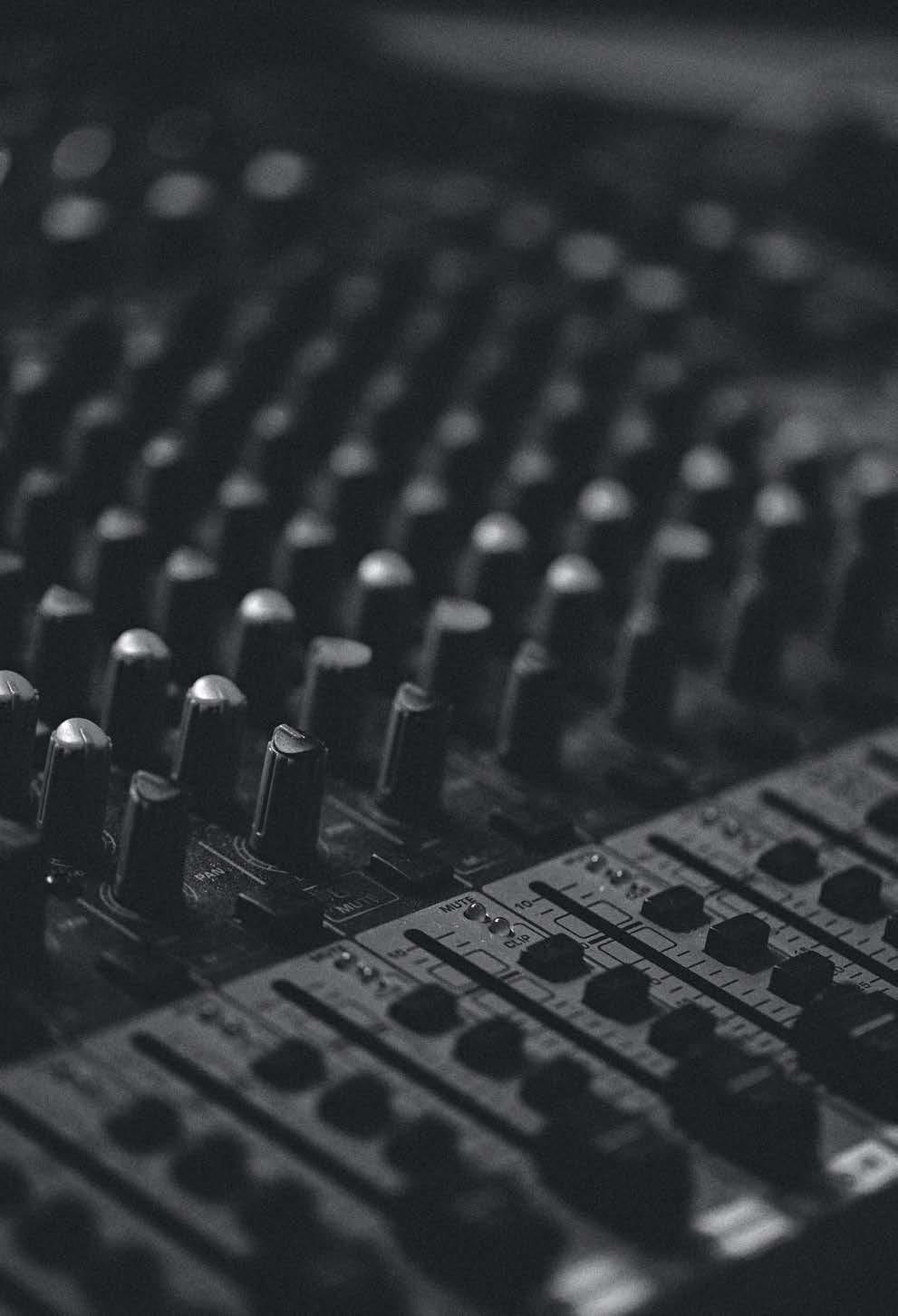
FILM COMPOSERS LAB is delivered with kind support from the Boris Karloff Charitable Foundation, Common Humanity Arts Trust, Garrick Charitable Trust
Music is ingrained in everything we do at Cirrus Logic, from our culture to our innovative technology. We are delighted to support the arts and give back to the Scottish community by backing the RSNO, a beloved cultural institution that exudes musical excellence in every performance.

Cirrus Logic is proud to support the RSNO for their 2023-24 season. cirrus.com
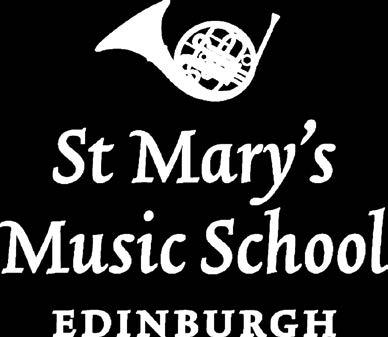
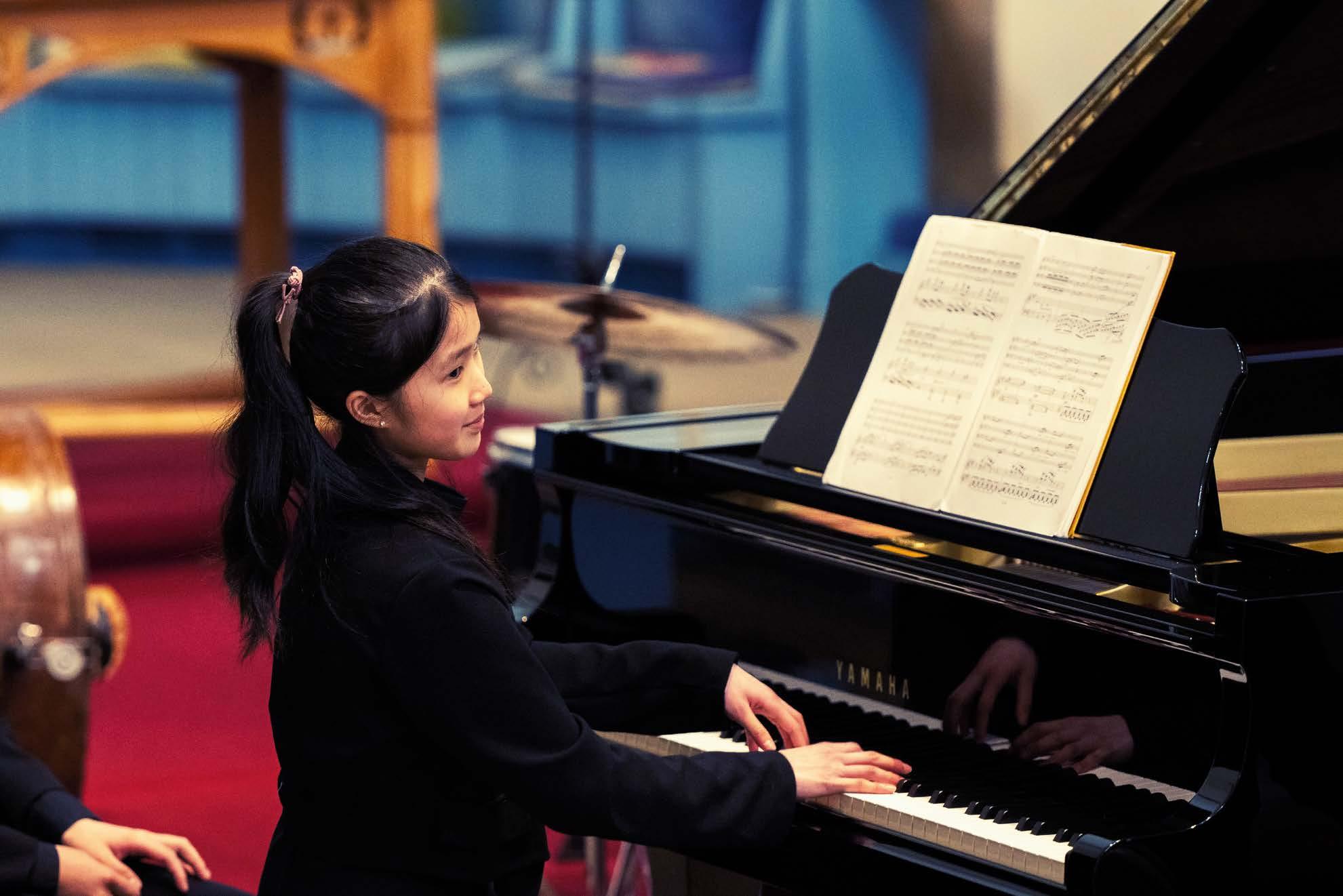
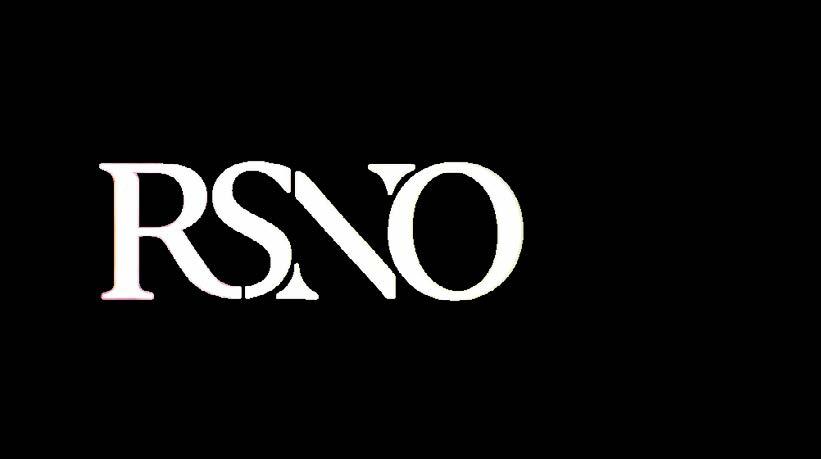


Music to transport you to the romance and glamour of 19th century Paris
Caird Hall, Dundee 1 March 7.30pm
Glasgow Royal Concert Hall 3 March 3pm
Book now scottishopera.org.uk
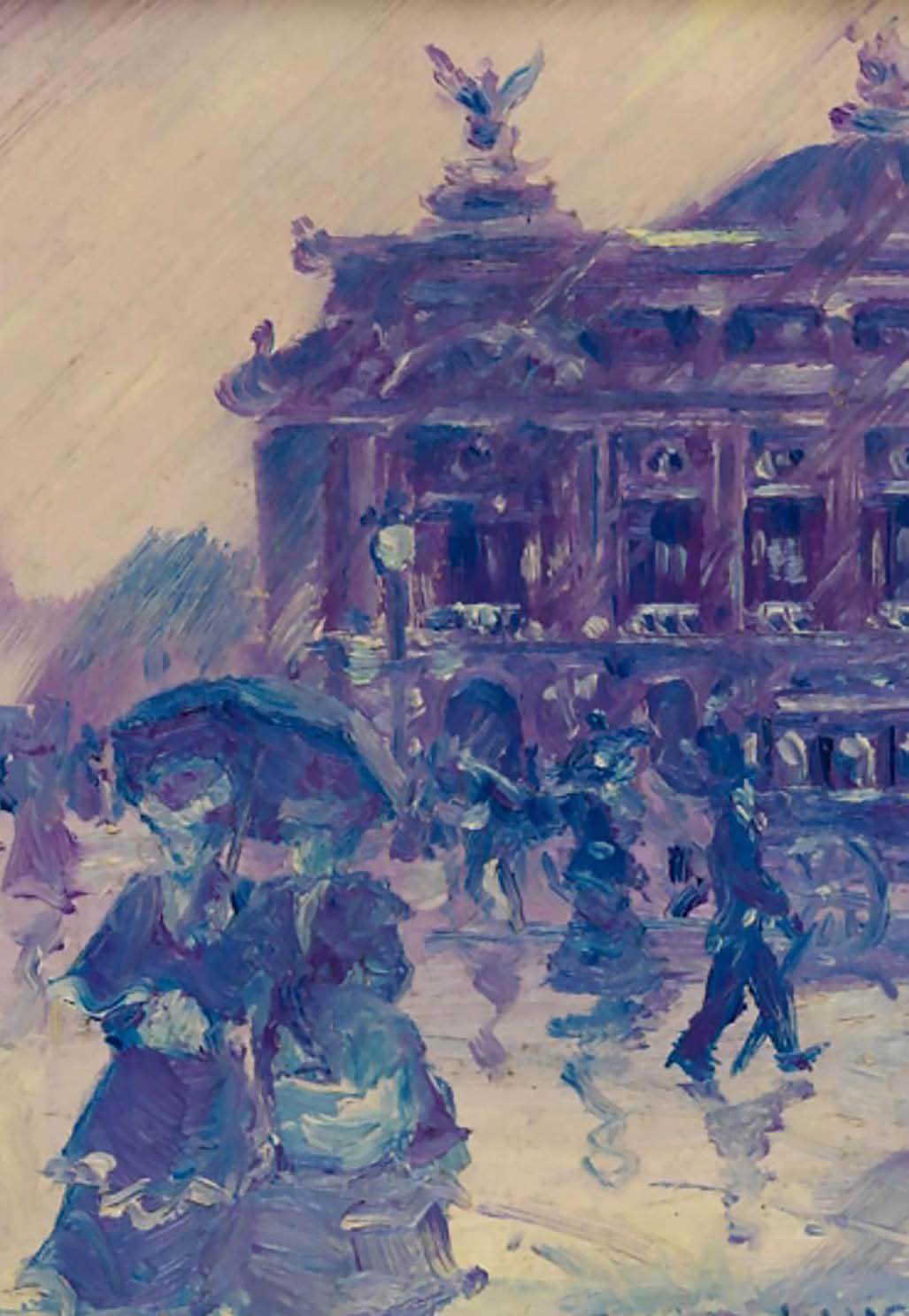
Conductor Stuart Stratford
Soloists include Alexandra Lowe, Catriona Morison, Alok Kumar and Callum Thorpe
Sung in French with English supertitles
Supported by Friends of Scottish Opera and The Scottish Opera Endowment Trust
FUNDERS




PRINCIPAL MEDIA PARTNER
PRINCIPAL TRANSPORT PARTNER

CHARITY PARTNER
CORPORATE SUPPORTERS PARTNERS

BROADCAST PARTNER
Glasgow Chamber of Commerce • Institute of Directors • Scots Magazine The Scottish Council for Development & Industry • Smart Graphics
PROJECT PARTNERS
Alzheimer Scotland • Black Lives in Music • Children’s Hospice Association • Children’s Classic Concerts • Classic FM • Douglas Academy
Dunedin Consort • Education Scotland • Gig Buddies • Goethe-Institut Glasgow • Hebrides Ensemble • Luminate
Music Education Partner Group • ParentZone • Royal Conservatoire of Scotland • Scottish Book Trust • Scottish Refugee Council
Sistema Scotland • St Mary’s Music School • Starcatchers • Tayside Healthcare Arts Trust • The Scottish Wildlife Trust University of Edinburgh • V&A Dundee • Visible Fictions
CHAIR SPONSORS

If you would like more information about sponsorships, corporate partnerships or fundraising events with the RSNO, please contact Jane Donald, Director of External Relations, at jane.donald@rsno.org.uk
RSNO: Scotland’s National Orchestra 19
RSNO BOARD OF DIRECTORS
Elected Directors
Dame Susan Bruce DBE CHAIR
Ken Hay
John Heasley
HONORARY TREASURER
Kat Heathcote
Don Macleod
Neil McLennan
Costa Pilavachi
Alistair Mackie
Nicola Kelman
EXECUTIVE ASSISTANT
Graham Bell
PLANNING OFFICER
Claire Bryan
STAGE AND PRODUCTION CREW/ SOUND TECHNICIAN
Katie Bryan
STAGE AND PRODUCTION CREW
Ken Fairbrother
STAGE AND PRODUCTION CREW
Ashley Holland
STAGE MANAGER
Emma Hunter
DEPUTY ORCHESTRA MANAGER
Ewen McKay
HEAD OF ORCHESTRA MANAGEMENT
Jim O’Brien
DRIVER AND ORCHESTRA TECHNICIAN
Richard Payne
LIBRARIAN
Tammo Schuelke
HEAD OF PLANNING
Craig Swindells
HEAD OF PRODUCTION
Matthias Van Der Swaagh
CONCERTS ADMINISTRATOR
Xander van Vliet
LIBRARY ASSISTANT
Christine Walker
CHORUS MANAGER
David Robinson
John Stewart
David Strachan
Player Directors
Katherine Bryan
Christopher Hart
David Hubbard
Dávur Juul Magnussen
Sophie Lang
Lorna Rough
LEARNING AND ENGAGEMENT
Nominated Directors
Cllr Edward Thornley
THE CITY OF EDINBURGH COUNCIL
Company Secretary
Julia Miller
RSNO COUNCIL
Baroness Ramsay of Cartvale CHAIR
Ms Ruth Wishart
Andrew Stevenson DIRECTOR OF ENGAGEMENT
Samantha Campbell
CREATIVE PRODUCER FOR COMMUNITIES
Rosie Kenneally
CREATIVE PRODUCER FOR LEARNING
Maisie Leddy ENGAGEMENT COORDINATOR
Rachel Pyke
ENGAGEMENT COORDINATOR
EXTERNAL RELATIONS
Dr Jane Donald
DIRECTOR OF EXTERNAL RELATIONS
Lisa Ballantyne
PARTNERSHIPS OFFICER
Ian Brooke
PROGRAMMES EDITOR
Rosie Clark
COMMUNICATIONS AND MARKETING OFFICER
Jessica Cowley
MARKETING MANAGER
Carol Fleming
HEAD OF MARKETING
Polly Lightbody
EXTERNAL RELATIONS ADMINISTRATOR
Graham Ramage
GRAPHICS DESIGNER
Kirsten Reid
TRUSTS AND PROJECTS COORDINATOR
Sam Stone INFORMATION SERVICES MANAGER
Ross Williamson
VIDEO PRODUCER (MARKETING)
YOUTH ASSEMBLY
George Hillier
Amy McColl
Hazel Sharp
Ailsa Smith
Jessica Smith
Penny Snell
Rachel Sunter
Ailsa Thompson
Danny Urquhart
FINANCE AND CORPORATE SERVICES
Angela Moreland
CHIEF OPERATING OFFICER
Abby Dennison
FINANCE ADMINISTRATOR
Alice Gibson
FINANCE ADMINISTRATOR
Ted Howie
FACILITIES COORDINATOR
Lorimer Macandrew
VIDEO PRODUCER
Sam McErlean
ASSISTANT SOUND ENGINEER
Irene McPhail
ACCOUNTS AND PAYROLL ASSISTANT
Calum Mitchell
ASSISTANT VIDEO PRODUCER
Hedd Morfett-Jones
DIGITAL MANAGER
Susan Rennie
FINANCE MANAGER
Jade Wilson
FINANCE ASSISTANT
Royal Scottish National Orchestra
19 Killermont Street
Glasgow G2 3NX
T: +44 (0)141 226 3868
W: rsno.org.uk
Scottish Company No. 27809
Scottish Charity No. SC010702
Featuring music from Civilization VI, World of Warcraft, Donkey Kong, Final Fantasy and more!
EDINBURGH
Fri 31 May: 7.30pm
Eímear Noone Conductor
GLASGOW
Sat 1 Jun: 7.30pm
RSNO Youth Chorus & Changed Voices
Patrick Barrett RSNO Youth Choruses Director
Frikki Walker RSNO Changed Voices Director
rsno.org.uk